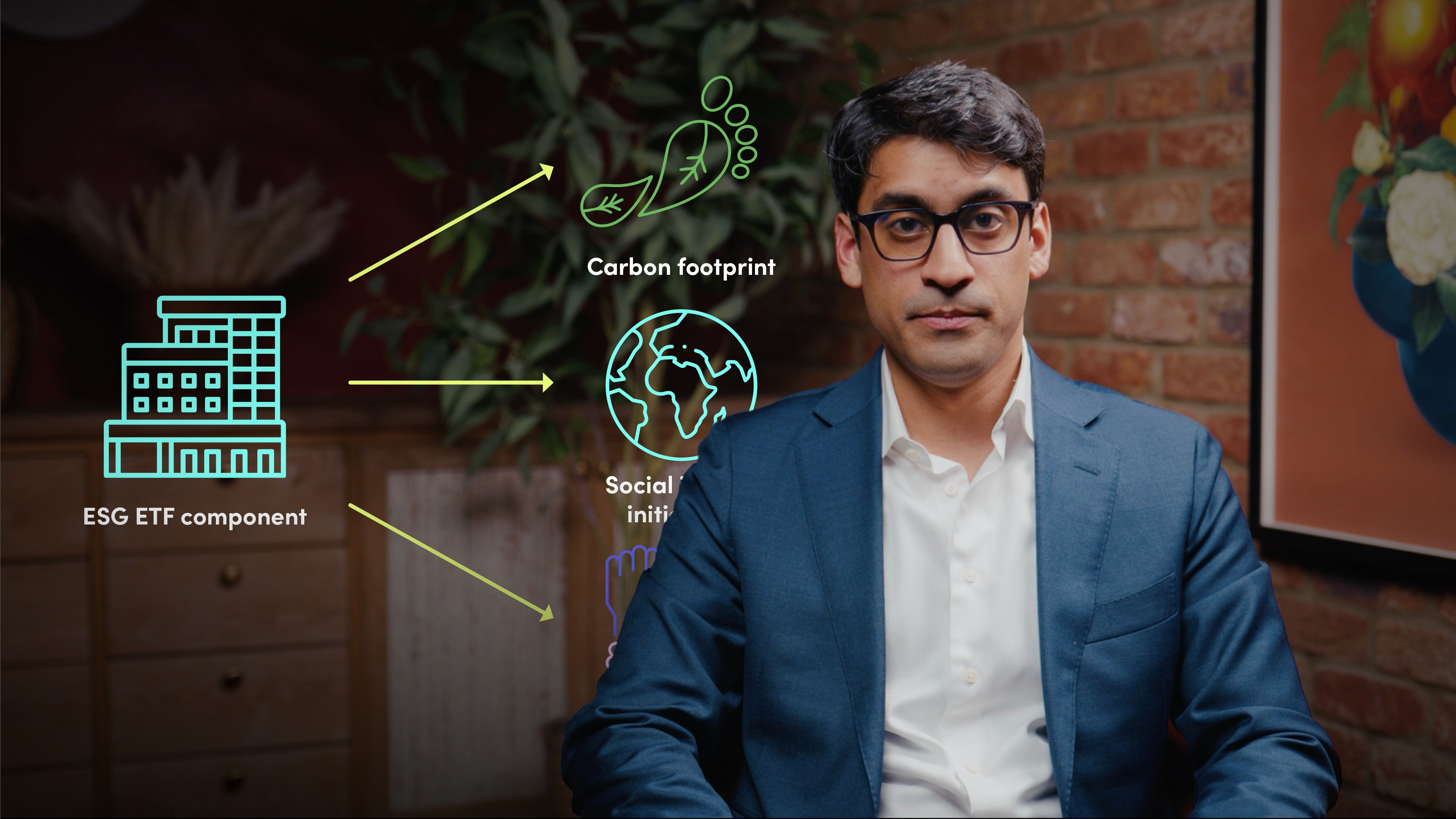
Introduction to ESG ETFs II

Rahul Bhushan
15 years: Structured Products and Sustainability
In this video, Rahul dives into ESG ETFs, investments that combine values and returns. These funds align with sustainability goals, manage risks better through ESG insights, and offer potential financial gains. With diversification benefits and a market surge from $23B in 2016 to over $200B in 2020, ESG ETFs are reshaping investing for a sustainable future.
In this video, Rahul dives into ESG ETFs, investments that combine values and returns. These funds align with sustainability goals, manage risks better through ESG insights, and offer potential financial gains. With diversification benefits and a market surge from $23B in 2016 to over $200B in 2020, ESG ETFs are reshaping investing for a sustainable future.
Subscribe to watch
Access this and all of the content on our platform by signing up for a 7-day free trial.

Introduction to ESG ETFs II
11 mins 27 secs
Key learning objectives:
Understand the benefits of ESG ETFs
Outline the growth of the ESG ETF market and future of the market
Understand how to approach ESG ETF investing
Overview:
ESG ETFs offer investors a unique blend of advantages including the alignment of investments with environmental, social, and governance values, comprehensive risk management through ESG integration, the potential for superior financial returns from companies with robust ESG practices, and diversified portfolios spanning various sectors and regions. The remarkable growth is rooted in green finance principles, with the ESG ETF market surging from $23 billion in assets under management in 2016 to over $200 billion by 2020. As sustainability issues gain prominence, technological advancements improve data transparency, and regulations like the EU's SFDR enhance sustainability reporting standards, the trajectory of ESG ETFs is decidedly upward.
Subscribe to watch
Access this and all of the content on our platform by signing up for a 7-day free trial.
- Alignment with values: They allow investors to support firms that prioritise environmental stewardship, social equality, and strong governance. This gives a sense of purpose, actively backing sustainability objectives.
- Enhanced risk management: These ETFs integrate ESG factors, helping to identify risks not seen in traditional financial analysis. This results in informed decision-making.
- Potential financial upside: Companies with strong ESG often have better risk management and strategic foresight, potentially yielding higher financial returns.
- Diversification: ESG ETFs invest across sectors and regions, reducing specific risks and increasing stability.
Subscribe to watch
Access this and all of the content on our platform by signing up for a 7-day free trial.

Rahul Bhushan
There are no available Videos from "Rahul Bhushan"





























